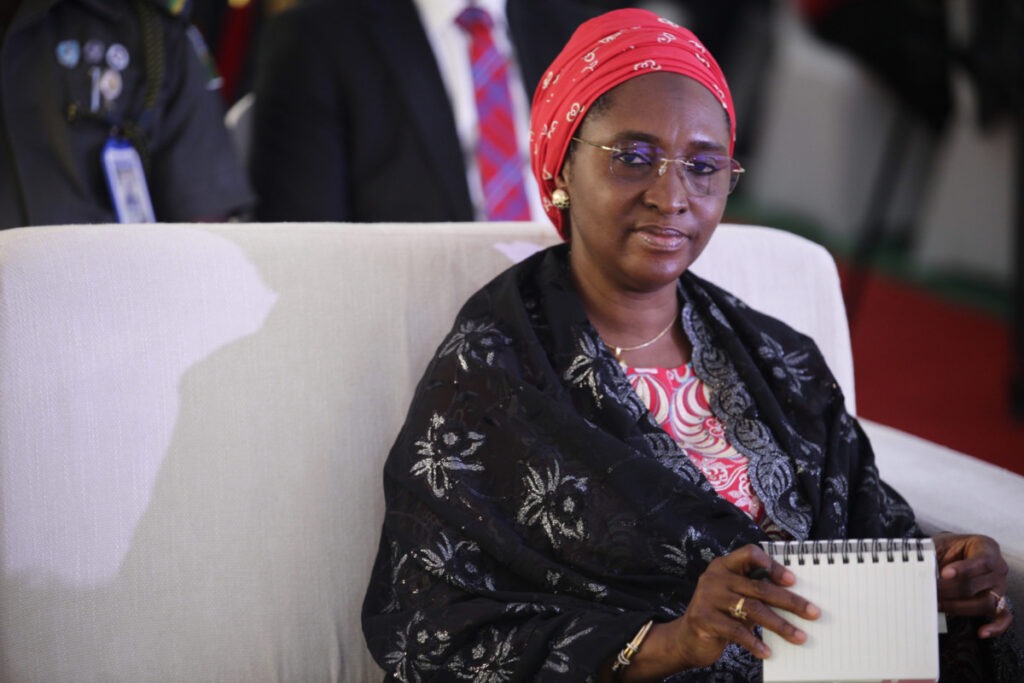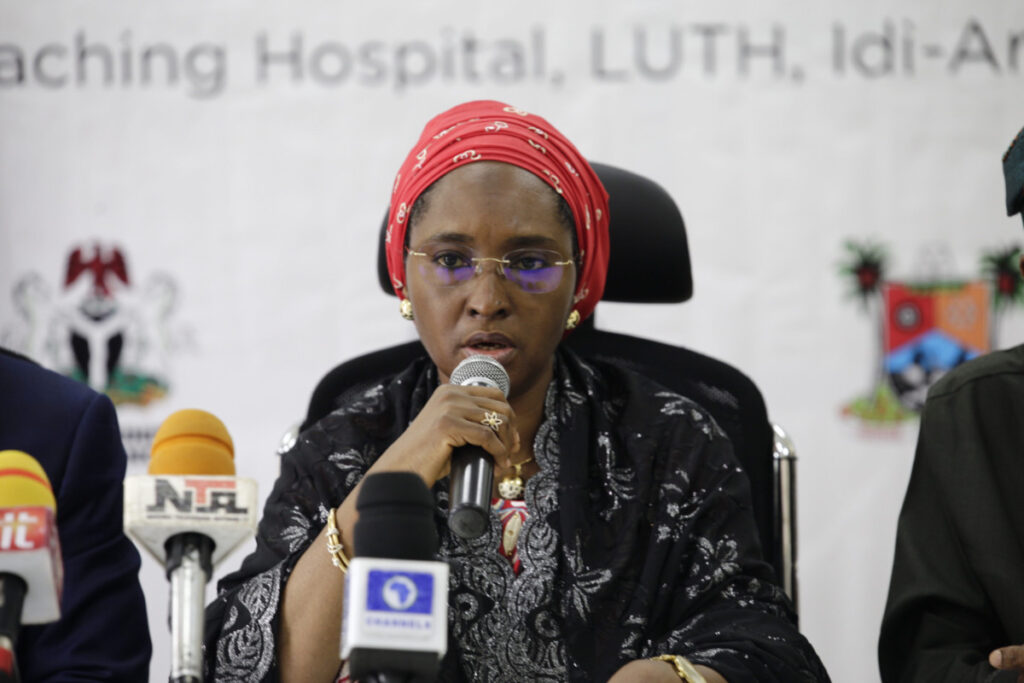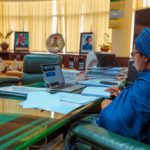The International Monetary Fund (IMF) has approved US$3.4 billion in emergency financial assistance under the Rapid Financing Instrument (RFI) to support Nigeria’s efforts in addressing the severe economic impact of the COVID-19 shock and the sharp fall in oil prices.
This was disclosed yesterday in a release number 20/191by Lucie Mboto Fouda of the IMF communications department, noting that the COVID-19 outbreak has magnified existing vulnerabilities, leading to a historic contraction in real GDP growth and to large external and fiscal financing needs.
Recall that at the development committee plenary of the 2020 virtual spring meetings of the World Bank Group and the International Monetary Fund (WBG/IMF) held a few weeks ago, Mrs. Zainab Ahmed, Honourable Minister of Minister of Finance, Budget and National Planning, had made known on behalf of Nigeria and the entire African countries, the bank’s willingness to commit up to $160 billion within the next 15 months, and up to $350 billion by 2023.
Addressing the meetings then, she noted that African countries, while responding to the challenges of the impact of COVID-19 pandemic and the severe disruptions in the global economy, have been forced to contend with multiple external shocks such as falling commodity prices, decelerating remittance flows, capital outflows, trade disruptions and rapidly rising debt levels.
Appreciating the Fund following the approval of US$ 3.4 billion in emergency support to the country, Ahmed said: “We appreciate the IMF for its timely response meant to assist us mitigate the initial impact of the pandemic on human population. Nigeria will certainly make judicious use and prudent management of the facility. These are trying times and every kobo must count from this facility. We will also continue to welcome and commend the Fund for its strong, and forward-looking commitment to support developing countries’ efforts to restart their economies.”
According to the Fund, the executive board of the IMF approved Nigeria’s request for emergency financial assistance of SDR 2,454.5 million (US$ 3.4 billion, 100 percent of quota) under the RFI to meet the urgent balance of payment needs stemming from the outbreak of the COVID-19 pandemic.

The IMF noted that once the impact of the COVID-19 shock passes, the country’s commitment to medium-term macroeconomic stability remains crucial to support the recovery and ensure debt remains sustainable, stating therefore that it remains closely engaged with the Nigerian authorities and stands ready to provide policy advice and further support, as needed.
“The near-term economic impact of COVID-19 is expected to be severe, while already high downside risks have increased. Even before the COVID-19 outbreak, Nigeria’s economy was facing headwinds from rising external vulnerabilities and falling per capita gross domestic product (GDP) levels. The pandemic—along with the sharp fall in oil prices—has magnified the vulnerabilities, leading to a historic decline in growth and large financing needs.”
The IMF financial support would, as stated by the Fund, help limit the decline in international reserves and provide financing to the budget for targeted and temporary spending increases aimed at containing and mitigating the economic impact of the pandemic and of the sharp fall in international oil prices.
Following the executive board’s discussion of Nigeria, Mr. Mitsuhiro Furusawa, Deputy Managing Director and Acting Chair of the Fund, stated: “The COVID-19 outbreak—magnified by the sharp fall in international oil prices and reduced global demand for oil products—is severely impacting economic activity in Nigeria. These shocks have created large external and financing needs for 2020. Additional declines in oil prices and more protracted containment measures would seriously affect the real and financial sectors and strain the country’s financing.
“The authorities’ immediate actions to respond to the crisis are welcome. The short-term focus on fiscal accommodation would allow for higher health spending and help alleviate the impact of the crisis on households and businesses. Steps taken toward a more unified and flexible exchange rate are also important and unification of the exchange rate should be expedited.
“Once the COVID-19 crisis passes, the focus should remain on medium-term macroeconomic stability, with revenue-based fiscal consolidation essential to keep Nigeria’s debt sustainable and create fiscal space for priority spending. Implementation of the reform priorities under the Economic Recovery and Growth Plan, particularly on power and governance, remains crucial to boost growth over the medium term.
“The emergency financing under the RFI will provide much needed liquidity support to respond to the urgent balance of payment (BOP) needs. Additional assistance from development partners will be required to support the government’s efforts and close the large financing gap. The implementation of proper governance arrangements—including through the publication and independent audit of crisis-mitigating spending and procurement processes—is crucial to ensure emergency funds are used for their intended purposes.”






